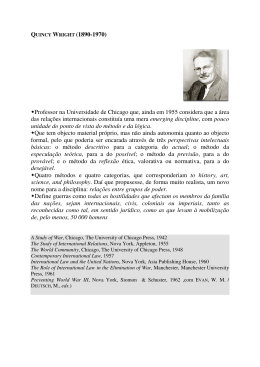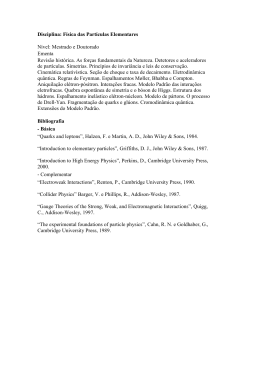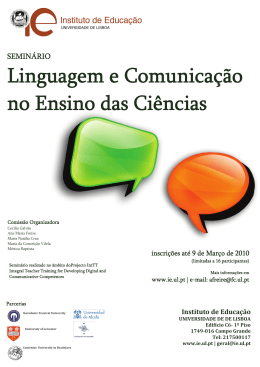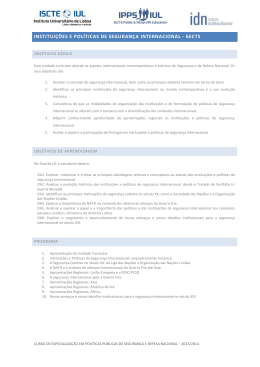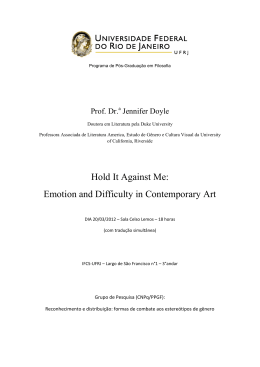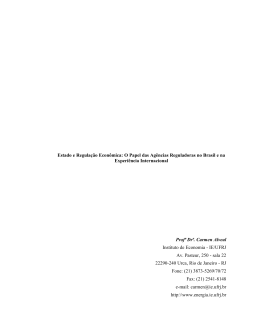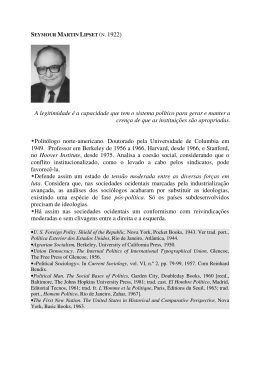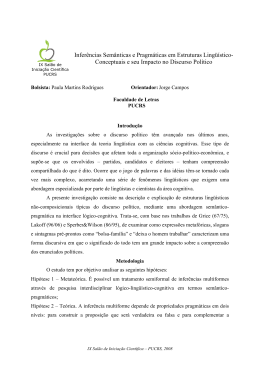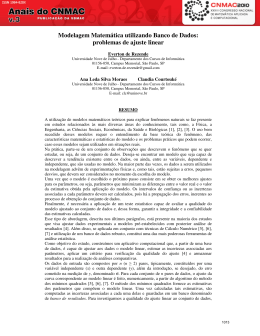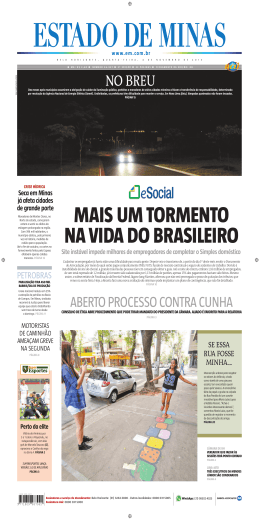6 Referências bibliográficas ALISON, M. Wartime sexual violence: women’s human rights and questions of masculinity. Review of International Studies, v. 33, n. 1, p. 75-90, 2007. ALLEN, B. Rape Warfare: The Hidden Genocide in Bosnia-Herzegovina and PUC-Rio - Certificação Digital Nº 0912308/CA Croatia. Minneapolis: University of Minnesota Press, 1996. ALVES, A.C.A. Contos sobre Ruanda: Uma Análise Crítica das Narrativas sobre o Genocídio Ruandês de 1994. Pontifícia Universidade Católica do Rio de Janeiro, Instituto de Relações Internacionais, Rio de Janeiro, 2005. ANDERSON, B. Imagined Communities: Reflections on the Origin and Spread of Nationalism. New York: Verso, 1991. APPADURAI, A. Fear of Small Numbers: An Essay on the Geography of Anger. Durham/London: Duke University Press, 2006. ASSOCIATION DES VEUVES DU GENOCIDE AGAHOZO. Disponível em: <http://www.avega.org.rw/English.html>. Acesso em: 29 ago 2011. BAINES, E. K. Body Politics and the Rwandan Crisis. Third World Quarterly, v. 24, n. 3, p. 479-493, 2003. BARNETT, M.; FINNEMORE, M. Rules for the world: International organizations in global politics. New York: Cornell University Press, 2004. 157 BIJLEVELD, C.; MORSSINKHOF, A.; SMEULERS, A. Counting the Countless: Rape Victimization During the Rwandan Genocide. International Criminal Justice Review, v. 19, n. 2, p.208-224, 2009. BORDO, S. Gender/Body/Knowledge: Feminist Reconstructions of Being and Knowing. New Brunswick: Rutgers University Press, 1989. ____. Unbearable Weight: Feminism, Western Culture, and The Body. Berkeley: University of California Press, 1993. PUC-Rio - Certificação Digital Nº 0912308/CA BOS, P. R. Feminists Interpreting the Politics of Wartime Rape: Berlin, 1945; Yugoslavia, 1992-1993. Signs: Journal of Women in Culture and Society, v. 31, n. 4, p. 995-1025, 2006. BRAIDOTTI, R. Nomadic Subjects: Embodiment and Sexual Difference in Contemporary Feminist Theory. New York: Columbia University press, 1994. BROWNMILLER, S. Against Our Will: Men, Women and Rape. New York: Fawcett Columbine, 1975. ____. Making Female Bodies the Battlefield. In: STIGLMAYER, A. (Ed.). Mass Rape: The War Against Women in Bosnia-Herzegovina. Lincoln: University of Nebraska Press, 1994, p. 180-182. BURNET, J. E. Women’s Land Rights in Rwanda. The Women and Land Studies, 2001. Disponível em: http://www.law.emory.edu/wandl/WAl-studies/rwanda.htm. Acesso em 22 jul 2011. BUTLER, J. Bodies that Matter: On the Discursive Limits of “Sex”. New York: Routledge, 1993. 158 ____. Performative Acts and Gender Constitution: An Essay in Phenomenology and Feminist Theory. In: CONBOY, K.; MEDINA, N.; STANBURY, S. (Eds.). Writing on the Body: Female Embodiment and Feminist Theory. New York: Columbia University Press, 1997a, p. 401-417. ____. Excitable Speech: A Politics of the Performative. New York: Routledge, 1997b. ____. Gender Trouble: Feminism and the Subversion of Identity. New York: PUC-Rio - Certificação Digital Nº 0912308/CA Routledge, 2006. CAMPBELL, D. Writing Security: United States Foreign Policy and the Politics of Identity. Minneapolis: University of Minnesota Press, 1992. CARPENTER, R. C. Gender in World Politics: Contributions of a Nonfeminist Standpoint? International Studies Review, v. 4, n. 3, p. 153-166, 2002. ____. Recognizing Gender-Based Violence Against Civilian Men and Boys in Conflict Situations. Security Dialogue, v. 37, n.1, p. 83-103, 2006. CARVER, T. Gender/Feminism/IR. International Studies Review, v. 5, n. 2, p. 288290, 2003. CHENAULT, S. And Since Akayesu? The Development of ICTR Jurisprudence on Gender Crimes: A Comparison of Akayesu and Muhimana. New England Journal of International and Comparative Law, v. 14, n. 2, p. 221-237, 2008. CHRETIEN, J. P. ‘Burundi: Le Métier D’Historien: Querelle D’École?’ Canadian Journal of African Studies, v. 25, n. 3, p. 450-470, 1991. 159 CLASTRES, P. La Société Contre L’Etat: Recherches d’Anthropologie Politique. Paris: Editions de Minuit, 1974. CONBOY, K.; MEDINA, N.; STANBURY, S. Writing on the Body: Female Embodiment and Feminist Theory. New York: Columbia University Press, 1997. CONNELL, R. W. Gender and Power: Society, the Person and Sexual Politics. Stanford: Stanford University Press, 1987. COOMARASWAMY, R. A question of Honour: Women, Ethnicity and Armed PUC-Rio - Certificação Digital Nº 0912308/CA Conflict. Lecture delivered at Third Minority Rights Lecture on 25th May, 1999 at Hotel Intercontinental, Geneva. Disponível em: <http://www.sacw.net/Wmov/RCoomaraswamyOnHonour.html>. Acesso em 29 ago 2011. COPELON, R. Gendered War Crimes: Reconceptualizing Rape in Time of War. In: PETERS, J.; WOLPER, A. (Eds.). Women's Rights, Human Rights: International Feminist Perspectives. New York: Routledge, 1995, p. 197-214. CRENSHAW, K. Intersectionality and Identity Politics: Learning from Violence Against Women of Color. In: SHANLEY, M.; NARAYAN, U. (Eds.). Reconstructing Political Theory: Feminist Perspectives. University Park: Pennsylvania State University Press, 1997, p. 178-193. DAS, V. Violence, Gender, and Subjectivity. Annual Review of Anthropology, v. 37, p. 283-299, 2008. DE BEAUVOIR, S. The Second Sex. New York: Vintage, 1973. DE BROUWER, A.; KA HON CHU, S.; MUSCATI, S. The Men Who Killed Me: Rwandan Survivors of Sexual Violence. Vancouver: Douglas & McIntyre, 2009. 160 DES FORGES, A. Leave None to Tell the Story: Genocide in Rwanda. New York: Human Rights Watch, 1999. DEVETAK, R. Postmodernism. In: BURCHILL, S.; LINKLATER, A. Theories of International Relations. New York: St. Martin’s Press, 1996, p. 179-209. DIKEN, B.; LAUSTSEN, C. B. Becoming Abject: Rape as a Weapon of War. Body and Society, v. 11, n. 1, p. 111-128, 2005. DOTY, R. The Bounds of ‘Race’ in International Relations. Millennium: Journal of PUC-Rio - Certificação Digital Nº 0912308/CA International Studies, v. 22, n.3, p. 443-461, 1993. EDKINS, J.; PIN-FAT, V. Introduction: Life, Power and Resistence. In: EDKINS, J., PIN-FAT, V.; SHAPIRO, M. Sovereign Lives: Power in Global Politics. New York: Routledge, 2004, p.1-22. ELSHTAIN, J. B. Women and War. Chicago: The University of Chicago Press, 1995. ENLOE, C. Bananas, Beaches and Bases: Making Feminist Sense of World Politics. Los Angeles: University of California Press, 2000. ____. Globalization and Militarism: Feminists Make the Link. Lanham: Rowman & Littlefield, 1997. FARWELL, N. War Rape: New Conceptualizations and Responses. Affilia, v. 19, n. 4, p. 389-403, 2004. FERGUSON, K. E. The Man Question: Visions of Subjectivity in Feminist Theory. Berkeley: University of California Press, 1993. 161 FOUCAULT, M. Microfísica do Poder. Rio de Janeiro: Graal, 1982. ____. História da Sexualidade: A Vontade de Saber. Rio de Janeiro: Graal, 1988. FRANCHE, D. ‘Généalogie Du Genocide Rwandasi, Hutu Et Tutsi: Gaulois Et Francs?’. Les Temps Modernes, n. 582, mai-juin, 1995, p. 1-58. GEORGE, A. L.; BENNETT, A. Case Studies and Theory Development in the Social Sciences. Cambridge: The MIT Press, 2005. PUC-Rio - Certificação Digital Nº 0912308/CA GOUREVITCH, Philip. Gostaríamos de informá-lo de que amanhã seremos mortos com nossas famílias. São Paulo: Companhia das Letras, 2006. HALLEY, J. Split Decisions: How and Why to Take a Break From Feminism. Princeton: Princeton University Press, 2006. HANSEN, L. Gender, Nation, Rape: Bosnia and the Construction of Security. International Feminist Journal of Politics, v. 3, n. 1, p. 55-75, 2001. ____. Security as Practice: Discourse Analysis and the Bosnian War. New York: Routledge, 2006. HATZFELD, J. Machete Season: The killers in Rwanda Speak. New York: Picador, 2005. HAWKESWORTH, M. E. Knowers, Knowing, Known: Feminist Theory and Claims of Truth. Signs: Journal of Women in Culture and Society, v. 14, n. 3, p. 533-557, 1989. HEBERT, L. Taking ‘Difference’ Seriously: Feminisms and the ‘Man Question’. Journal of Gender Studies, v. 16, n. 1, p. 31-45, 2007. 162 HELLIWELL, C. “It’s Only a Penis”: Rape, Feminism, and Difference. Signs: Journal of Women in Culture and Society, v. 25, n. 3, p. 789-816, 2000. HENRY, N. War and Rape: Law, Memory and Justice. New York: Routledge, 2011. HITJENS, H.M. When Identity Becomes a Knife: Reflecting on the Genocide in Rwanda. Ethnicities, v.1, n.1, p. 25-55, 2001. HOOPER, C. Mainly States: Masculinities, International Relations and Gender PUC-Rio - Certificação Digital Nº 0912308/CA Politics. New York: Columbia University Press, 2001. HUMAN RIGHTS WATCH. Shattered Lives: Sexual Violence during the Rwandan Genocide and its Aftermath. New York: Human Rights Watch, 1996. INEZA COOPERATIVE. Disponível em: <http://inezacooperative.wordpress.com/about/staff-profiles/>. Acesso em: 29 ago 2011. INTERNATIONAL COMMITTEE OF THE RED CROSS. Convention relative to the Protection of Civilian Persons in Time of War. Geneva, 1949. Disponível em: <http://www.icrc.org/ihl.nsf/385ec082b509e76c41256739041e636d/6756482d86146 898c125641e004aa3c5>. Acesso em: 29 ago 2011. INTERNATIONAL Judgement CRIMINAL TRIBUNAL (ICTR-96-4), 1998. FOR RWANDA. Disponível Akayesu em: <http://www.unictr.org/Portals/0/Case/English/Akayesu/judgement/akay001.pdf>. Acesso em: 5 set 2011. 163 ____. Barayagwiza Judgement (ICTR-97-19), 2003. Disponível em: <http://www.unictr.org/Portals/0/Case/English/Ngeze/judgement/Judg&sent.pdf>. Acesso em: 10 mai 2011. ____. Kajelijeli (ICTR-98-44A), Judgement 2003. Disponível em: <http://www.unictr.org/Portals/0/Case/English/Kajelijeli/judgement/031201-TC2-JICTR-98-44A-T-JUDGEMENT%20AND%20SENTENCE-EN_.pdf>. Acesso em: 5 set 2011. ____. Kamuhanda Judgement (ICTR-99-54), 2004. Disponível em: PUC-Rio - Certificação Digital Nº 0912308/CA <http://www.unictr.org/Portals/0/Case/English/Kamuhanda/decisions/220104.pdf>. Acesso em: 5 set 2011. ____. Muhimana Judgement (ICTR-95-1B), 2005. Disponível em: <http://www.unictr.org/Portals/0/Case/English/Muhimana/decisions/muhimana28050 2.pdf>. Acesso em: 5 set 2011. ____. Musema Judgement (ICTR-96-13), 2000. Disponível em: <http://www.unictr.org/Portals/0/Case/English/Musema/judgement/000127.pdf>. Acesso em: 5 set 2011. ____. Nahimana Judgement (ICTR-96-11), 2003. Disponível em: <http://www.unictr.org/Portals/0/Case/English/Nahimana/judgement/Judg&sent.pdf> . Acesso em: 10 mai 2011. ____. Ngeze Judgement (ICTR-97-27), 2003. Disponível em: <http://www.unictr.org/Portals/0/Case/English/Ngeze/judgement/Judg&sent.pdf>. Acesso em: 10 mai 2011. 164 ____. Nyiramasuhuko Judgement (ICTR-97-21), 2011. Disponível em <http://www.unictr.org/Portals/0/Case/English/Nyira/judgement/110624_judgement. doc>. Acesso em: 5 set 2011. JACOB, I. Dictionnaire Rwandais-Français: Extrait du dictionnaire de l’Institut National de Recherche Scientifique, 3 volumes. Kigali: L’Imprimerie Scolaire, 1984. JONES, A. Gendercide and Genocide. Nashville: Vanderbilt University Press, 2004. PUC-Rio - Certificação Digital Nº 0912308/CA KINSELLA, H. For a Careful Reading: The Conservatism of Gender Constructivism. International Studies Review, v. 5, n. 2, p. 294-297, 2003. KURKI, M. Causation in International Relations: Reclaiming Causal Analysis. Cambridge: Cambridge University Press, 2008. LAPID, Y. The Third Debate: On the Prospects of International Theory in a PostPositivist Era. International Studies Quarterly, vol. 33, n. 3, p. 235-254, 1989. ____. Culture’s ship: Returns and departures in International Relations theory. In: LAPID, Y.; KRATOCHWIL, F. (Eds.). The Return of Culture and Identity in IR Theory. Boulder: Lynne Rienner, 1996, p. 3-20. LEMARCHAND, R. Rwanda and Burundi. London: Pall Mall, 1970. MACKINNON, C. A. Rape, Genocide and Women’s Human Rights. In: STIGLMAYER, A. Mass Rape: The War against Women in Bosnia-Herzegovina, 1994, p. 183-196. MALKKI, L. Purity and Exile: Violence, Memory, and National Cosmology Among Hutu Refugees in Tanzania. Chicago: University of Chicago Press, 1995. 165 MALLOT, J. E. Body Politics and the Body Politic: Memory as Human Inscription in What the Body Remembers. Interventions, v. 8, n. 2, p. 165-177, 2006. MAMDANI, M. When Victims Become Killers: Colonialism, Nativism, and the Genocide in Rwanda. Princeton: Princeton University Press, 2001. MARCUS, S. Fighting Bodies, Fighting Words: A Theory and Politics of Rape Prevention. In: BUTLER, J.; SCOTT, J. W. (Eds.) Feminists Theorize the Political. PUC-Rio - Certificação Digital Nº 0912308/CA London: Routledge, 1992, p. 385-403. MBEMBE, A. Necropolitics. Public Culture, v. 15, n. 1, p. 11-40, 2003. MCCLINTOCK, A. “No Longer in a Future Heaven”: Gender, Race and Nationalism. In: MCCLINTOCK, A.; MUFTI, A.; SHOHAT, E. Dangerous Liaisons: Gender, Nation, Postcolonial Perspectives. Minneapolis: University of Minnesota Press, 1997, p. 89-112. MCNAMEE, E. In the Midst of Death We are in Life…Biopolitics and Beginning Again in Rwanda. Social & Legal Studies, v. 16, n. 4, p. 483-508, 2007. MINISTRY OF JUSTICE REPUBLIC OF RWANDA. Mediation Committes. Disponível em: <http://www.minijust.gov.rw/moj/mediationcommittees.aspx>. Acesso em: 20 ago 2011 ____. Law N° 22/99 Regarding Matrimonial Regimes, Liberalities and Successions. Disponível em: <http://www.amategeko.net/display_rubrique.php?ActDo=ShowArt&Information_ID =678&Parent_ID=3068178&type=public&Langue_ID=An&rubID=3068181#306818 1>. Acesso em: 22 jul 2011. 166 MONTAG, W. Necro-Economics: Adam Smith and the Death in the Life of the Universal. Radical Philosophy, 134 Nov/ Dec, p. 7-17, 2005. MUKAMANA, D.; BRYSIEWICZ, P. The Lived Experience of Genocide Rape Survivors in Rwanda. Journal of Nursing Scholarship, v. 40, n. 4, p. 379-384, 2008. MULLINS, C. W. “He Would Kill Me With His Penis”: Genocidal Rape in Rwanda as a State Crime. Critical Criminology, v. 17, n. 1, p. 15-33, 2009. NATIONAL UNITY AND RECONCILIATION COMMISSION. Disponível em: PUC-Rio - Certificação Digital Nº 0912308/CA <http://www.nurc.gov.rw/home.html>. Acesso em: 20 ago 2011 NELSON, D. M. A Finger in the Wound: Body Politics in Quincentennial Guatemala. Los Angeles: University of California Press, 1999. NEWBURY, C. The Cohesion of Oppression: Citizenship and Ethnicity in Rwanda, 1860-1960. New York: Columbia University Press, 1988. PETERSON, V. S. Transgressing Boundaries: Theories of Knowledge, Gender and International Relations. Millennium: Journal of International Studies, v. 21, n.2, p. 183-206, 1992a. ____. Gendered States: Feminist (Re)Visions of International Relation Theory. Boulder: Lynne Rienner, 1992b. PETERSON, V. S.; RUNYAN, A. S. Global Gender Issues in the New Millennium. Boulder: Westview Press, 2010. PETTMAN, J. J. Body Politics: International Sex Tourism. Third World Quarterly, v. 18, n. 1, p. 93-108, 1997. 167 PREVENT GENOCIDE INTERNATIONAL. Convention on the Prevention and Punishment of the Crime of Genocide. Disponível em: <http://www.preventgenocide.org/law/convention/text.htm>. Acesso em: 31 ago 2011. ____. Rome Estatute of the International Criminal Court. Disponível em: <http://www.preventgenocide.org/law/icc/statute/part-a.htm>. Acesso em: 31 ago 2011. PRUNIER, G. The Rwanda Crisis: History of a Genocide. New York: Columbia PUC-Rio - Certificação Digital Nº 0912308/CA University Press, 1995. RAE, H. State Identities and the Homogenisation of Peoples. Cambridge: Cambridge University Press, 2002. RILEY, D. “Am I That Name?”: Feminism and the Category of “Women” in History. Minneapolis: University of Minnesota Press, 1988. RWANDA FILE. List of Kangura Articles. Disponível em: <http://www.rwandafile.com/Kangura/kanguralist.html>. Acesso em: 06 mai 2011. ____. General Dallaire and his army have fallen into the trap of the Tutsi femmes fatales. Kangura, n. 56, fev 1994. Disponível em: <http://www.rwandafile.com/Kangura/k56c1.html>. Acesso em: 06 mai. 2011. ____. Appeal to the Bahutu Conscience (With the Hutu Ten Commandments). Kangura, n. 06, dez 1990. Disponível em: <http://www.rwandafile.com/Kangura/k06a.html>. Acesso em: 18 mai. 2011 ____. R.T.L.M.: No Chance for the Tutsi. Kangura, n. 46, jul 1993 Disponível em: <http://www.rwandafile.com/Kangura/k46a.html>. Acesso em: 18 mai. 168 SCOTT, J. W. Gender and the Politics of History. New York: Columbia University Press, 1999. SEAGAL, L. Slow Motion: Changing Masculinities, Changing Men. London: Virago, 1990. SEIFERT, R. War and Rape: A Preliminary Analysis. In: STIGLMAYER, A. (Ed). Mass Rape: The War against Women in Bosnia-Herzegovina. Lincoln: University of Nebraska Press, 1994, p. 54-72. PUC-Rio - Certificação Digital Nº 0912308/CA SHANKS, L.; SCHULL, M. Rape in War: The Humanitarian Response. Canadian Medical Association Journal, v. 163, n. 9, p. 1152-1156, 2000. SHARLACH, L. Gender and Genocide in Rwanda: Women as Agents and Objects of Genocide. Journal of Genocide Research, v. 1, n. 3, p. 387-399, 1999. SKJELSBAEK, I. Sexual Violence and War: mapping Out a Complex Relationship. European Journal of International Relations, v. 7, n. 2, p. 211-231, 2001. STEANS, J. Gender and International Relations. Malden: Polity, 2006. TAYLOR, C. Sacrifice as Terror: The Rwandan Genocide of 1994. Oxford: Berg Publishers, 1999. THE NEW YORK TIMES. Thousands of Rwanda Dead Wash Down to Lake Victoria. The New York Times, New York, 21 mai. 1994. Disponível em: <http://partners.nytimes.com/library/world/africa/052194rwanda-genocide.html>. Acesso em: 20 mai 2011 TICKNER, J. A. Gender in International Relations: Feminist Perspectives on Achieving Global Security. New York: Columbia University Press, 1992. 169 ____. Re-visioning Security. In: BOOTH, K.; SMITH, S. (Eds.). International Relations Theory Today. Pennsylvania: The Pennsylvania State University Press, 1995, p. 175-197. ____. “You Just Don’t Understand: Troubled Engagements Between Feminists and IR Theorists”. International Studies Quarterly, Vol. 41, n. 4, p. 611-632, 1997. TORGOVNIK, J. Intended Consequences: Rwandan children Born of Rape. MediaStorm. Disponível em: <http://mediastorm.com/publication/intended- PUC-Rio - Certificação Digital Nº 0912308/CA consequences>. Acesso em: 22 jul 2011. TRUE, J. Feminism. In: BURCHILL, S.; LINKLATER, A. (Eds). Theories of International Relations. New York: St. Martin’s Press, 1996, p. 210-251. UNITED NATIONS DEPARTMENT OF ECONOMIC AND SOCIAL AFFAIRS/DIVISION FOR THE ADVANCEMENT OF WOMEN. Women2000: Sexual Violence and Armed Conflict: United Nations Response, DESA/DAW, 1998). Disponível em: <http://www.un.org/womenwatch/daw/public/cover.pdf>. Acesso em 12 ago 2010. UNITED NATIONS ECONOMIC AND SOCIAL COUNCIL. Contemporary Forms of Slavery: Systematic Rape, Sexual Slavery and Slavery-like Practices during Armed Conflict, E/CN.4/Sub. 2/1998/13, 1998. Disponível em <http://www.unhchr.ch/Huridocda/Huridoca.nsf/0/3d25270b5fa3ea998025665f0032f 220?Opendocument> Acesso em: 12 ago 2010. UNITED NATIONS ECONOMIC AND SOCIAL COUNCIL. Report on the Situation of Human Rights in Rwanda (UN Special Rapporteur to the Commission on Human Rights), E/CN.4/1996/68. Disponível em: 170 <http://www.unhchr.ch/Huridocda/Huridoca.nsf/0/aee2ff8ad005e2f6802566f30040a9 5a?Opendocument>. Acesso em: 29 ago 2011. UNITED NATIONS GENERAL ASSEMBLY. Report of the International Criminal Tribunal for Rwanda to the General Assembly, A/54/315, 1999. Disponível em: <http://www.un.org/ga/54/doc/tcir.pdf> Acesso em: 13 ago 2010. UNITED NATIONS HIGH COMMISSIONER FOR REFUGEES. The state of the world’s refugees: a humanitarian agenda. UNHCR, 1997. Disponível em: <http://www.unhcr.org/cgi- PUC-Rio - Certificação Digital Nº 0912308/CA bin/texis/vtx/home/opendocPDFViewer.html?docid=3eb78b3e4&query= chapter 4>. Acesso em: 22 jul 2011. UNITED NATIONS SECURITY COUNCIL. Women and Peace and Security, RES/1820, 2008. Disponível em: <http://daccess-dds- ny.un.org/doc/UNDOC/GEN/N08/391/44/PDF/N0839144.pdf?OpenElement> Acesso em: 12 ago 2010. VANSINA, J. La Légende Du Passé: Traditions Orales Du Burundi. Tervuren: Musée Royal de l’Áfrique Centrale, 1972. WALKER, R. B. J. Inside/Outside: International Relations as Political Theory. Cambridge: Cambridge University Press, 1993. WAX, E. Rwandans are Struggling to Love Children of Hate. The Washington Post, March 28, 2004. Disponível em: <http://www.genocidewatch.org/RwandanAreStrugglingToLovChildreno%20Hate.ht h>. Acesso em: 22 jul 2011. WE-ACTx. Disponível em: <http://www.we-actx.org/>. Acesso em: 29 ago 2011. 171 WEITSMAN, P. A. The Politics of Identity and Sexual Violence: A Review of Bosnia and Rwanda. Human Rights Quarterly, v. 30, n. 3, p. 561-578, 2008. WHITWORTH, S. Feminist Perspectives. In: WILLIAMS, P. (Ed.). Security Studies: An Introduction. New York: Routledge, 2008, p. 103-115. WOODHULL, W. Sexuality, Power and the Question of Rape. In: DIAMOND, I.; QUINBY, L. (Eds.). Feminism & Foucault: Reflections on Resistance. Boston: Northeastern University Press, 1988, p. 167-174. PUC-Rio - Certificação Digital Nº 0912308/CA YUVAL-DAVIS, N. Gender and Nation. London: Sage, 1997. ZALEWSKI, M.; ENLOE, C. Questions about identity in International Relations. In: BOOTH, K.; SMITH, S. (Eds.). International Relations Theory Today. Pennsylvania: The Pennsylvania State University Press, 1995, p. 279-305. ZALEWSKI, M. “Well, What is the Feminist Perspective on Bosnia?”. International Affairs, v. 71, n. 2, p. 339-356, 1995. ____. ‘I Don’t Even Know What Gender Is’: A Discussion of the Connections Between Gender, Gender Mainstreaming and Feminist Theory. Review of International Studies, v. 36, n.1, p. 3-27, 2010. Entrevistas BERNADETTE. Mulher ruandesa vítima de violência sexual. Entrevista concedida a Fernanda Barreto Alves. Kigali, 01 ago 2011. 172 BIROLI, Innocent. Diretor da Ineza (Organização não-governamental de apoio às mulheres vítimas do genocídio ruandês de 1994). Entrevista concedida a Fernanda Barreto Alves. Kigali, 01 ago 2011. JOSETTE. Mulher ruandesa vítima de violência sexual. Entrevista concedida a Fernanda Barreto Alves, Kigali, 01 ago 2011. MARIE. Mulher ruandesa vítima de violência sexual. Entrevista concedida a Fernanda Barreto Alves. Kigali, 01 ago 2011. PUC-Rio - Certificação Digital Nº 0912308/CA MPANGA PRISON. Perpetradores condenados por crimes cometidos contra Tutsis no genocídio ruandês de 1994. Entrevista concedida a Fernanda Barreto Alves. Nyanza, 29 jul 2011. NGOGA, Martin. Promotor Geral de Ruanda. Entrevista concedida a Fernanda Barreto Alves. Kigali, 02 ago 2011. 173 7 Anexos Anexo I - Lista de perguntas que auxiliaram a condução das entrevistas na AVEGA e na Ineza com as mulheres vítimas de violência sexual no genocídio ruandês de 1994. PUC-Rio - Certificação Digital Nº 0912308/CA - Você sofreu algum tipo de violência sexual durante o genocídio? - Você possui o vírus HIV? - Você perdoou o seu perpetrador? - O Estado ruandês teve algum tipo de envolvimento nas práticas de violência sexual? - Havia diferentes tipos de estratégias para eliminação do grupo Tutsi? As táticas utilizadas eram diferentes para homens e mulheres? - Você possui algum conhecimento sobre o fato de as mulheres utilizarem vestidos nos seus filhos homens para evitar que fossem mortos? PUC-Rio - Certificação Digital Nº 0912308/CA 174 Anexo II – Mapa de Ruanda
Download
PDF
